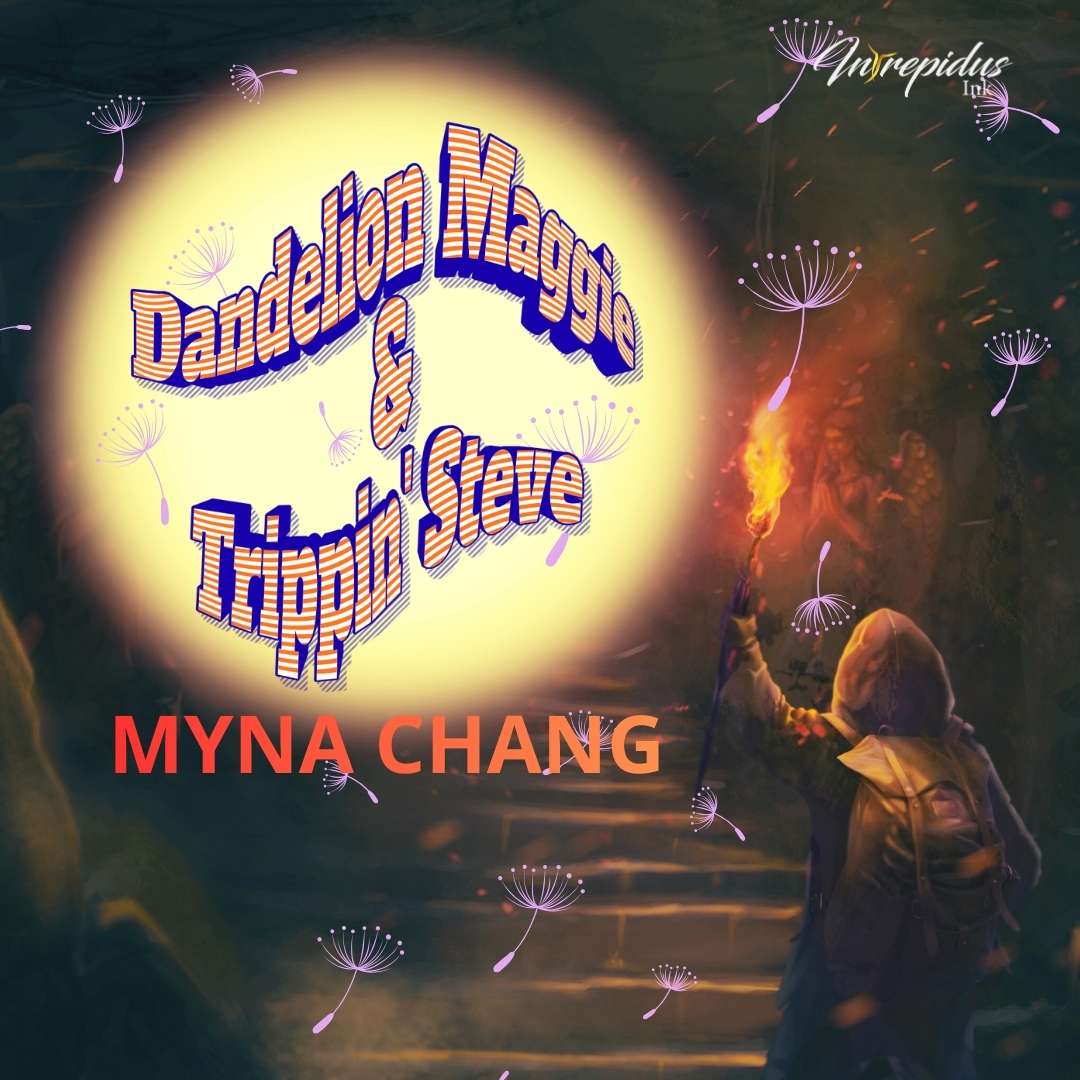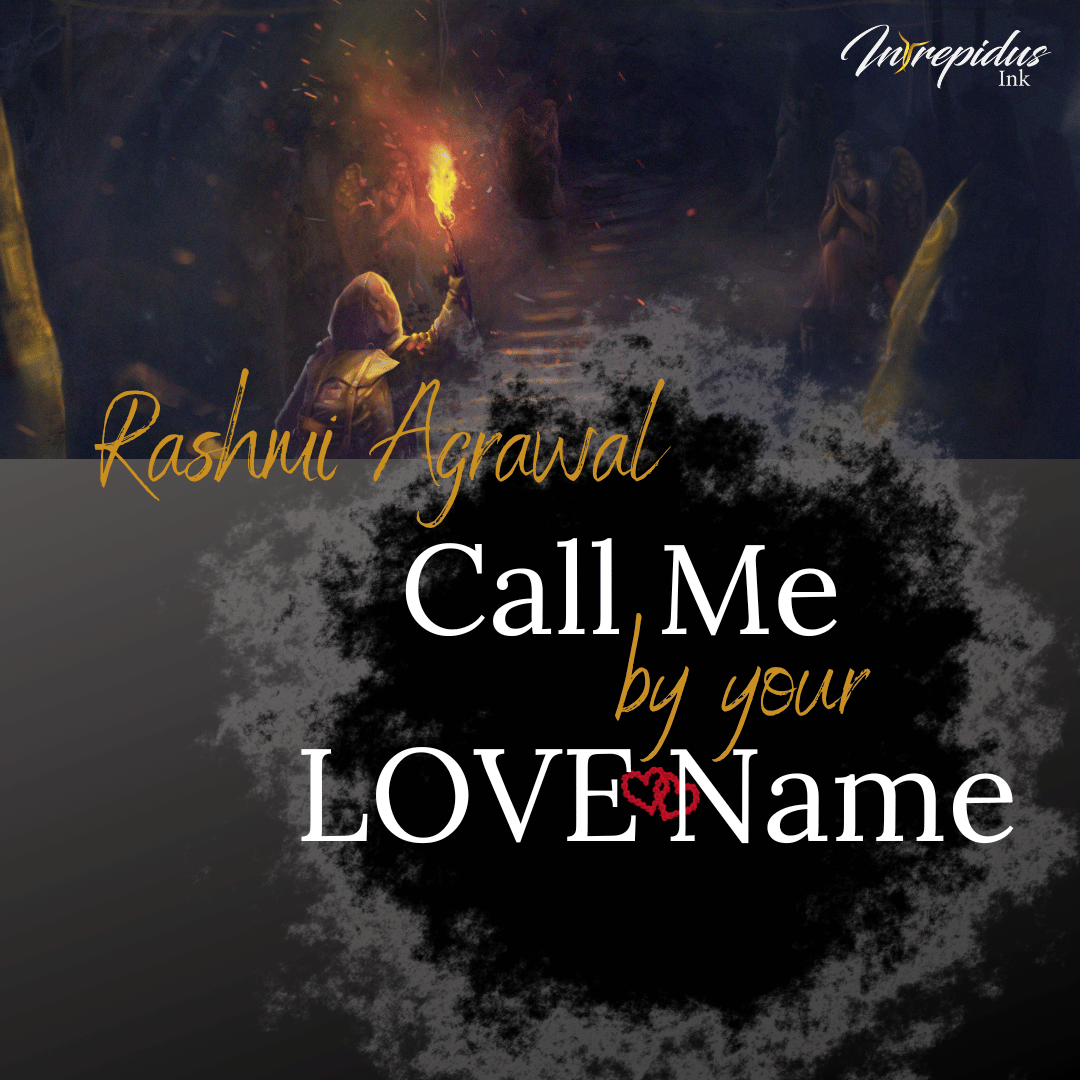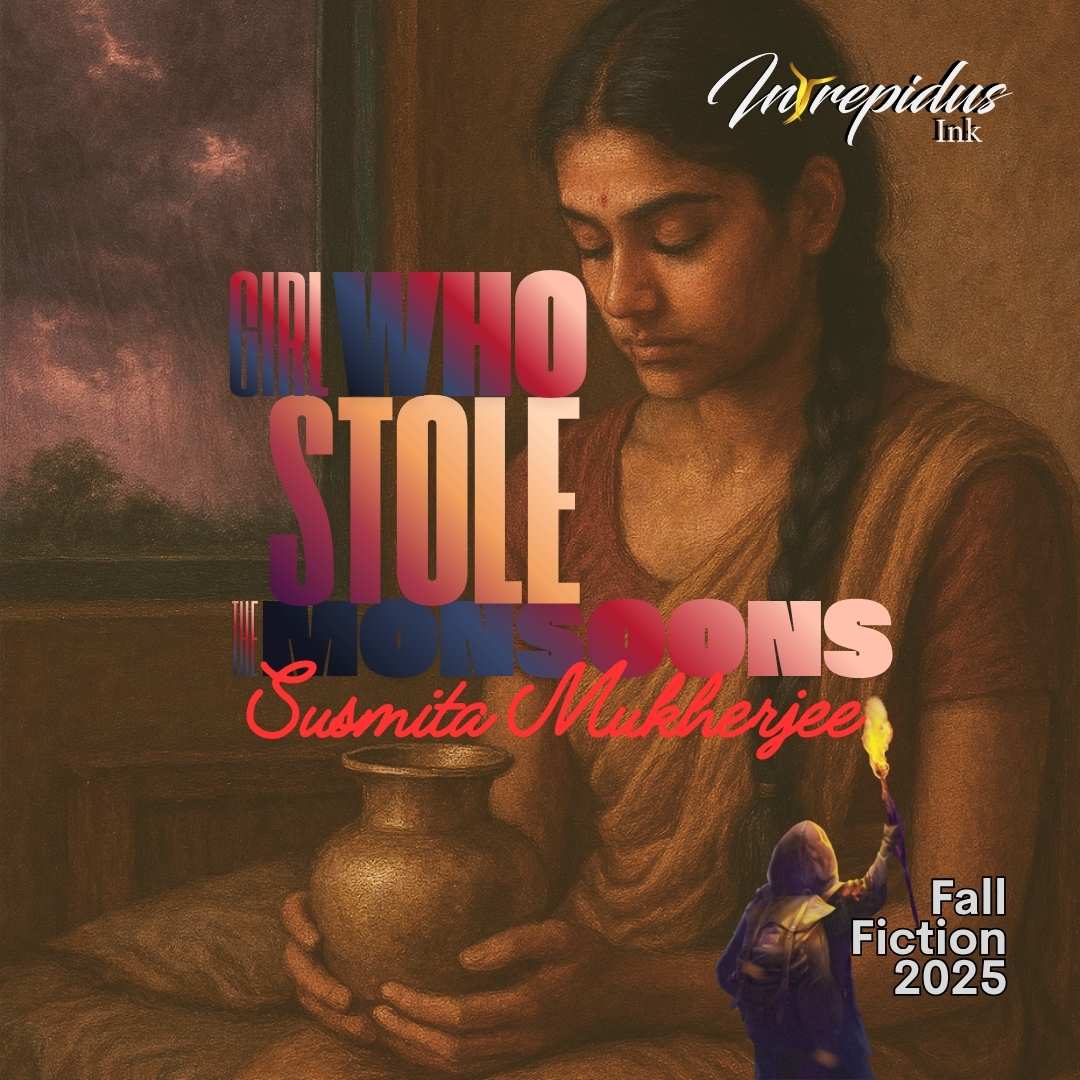

Literary Fiction
H
e moans Samyukta, Samyukta—your given name—with a lazy oomph. You halt, squint, your body crouched over him stiffens, and the frenzy between the four entwined palms dampens. “What’s wrong?” he asks as if nothing has happened.
You don’t know yet. You’re in a wormhole, about to enter a different world, a world that will be.
Your mother chose Samyukta before you were born, and Dad, a man of few words, shortened it to Sam. Everyone embraced the three-lettered nickname—teachers, friends, not-so-friendly classmates, and over-friendly neighbors. Even your neighborhood pets recognized you with that moniker. Your grandma, though, never complained, would have preferred something simpler, more traditional—like Meera.
He pet-named you Sammy.
When you first met him, a dramatic sequence of events ensued. You two collided in the office lift. You didn’t drop papers on the floor or spill hot cappuccino over him. Nor did he brace your falling body in his ripped arms; he never had such a physique. Rather, your laptop slipped and almost landed face down, but he caught it and rescued you from the penalty of a shattered screen.
He fondly said, “My pleasure, Sammy,” after sneaking a peek at your company’s badge when you invited him for a thank-you coffee. Your best friend stamped his move as casting an alluring net, but you liked the feel of how your new name rolled on his tongue. The parting of his jaws at sa and inward movement of his lips at mmy—so charismatic together that you didn’t mind listening to his voice over and over.
He resumes his chosen love name after calling you Samyukta for the first time in the nine-year-long togetherness. But hairline cracks were already scribbled on your love palace. Whenever he calls you Sammy now, your heart skips a beat. You assure yourself: His love is still the same.
Love for which you withdrew your resignation and resisted that agonizing office. Your best friend doubted. “He’s a fizz. Looks like a swinger.”
Love for which you moved in with him a year later against Mom’s disapproving grunts. “That bloke has got only compelling charms.”
Love in which you found your soulmate. Two long years later, you married him and shushed everyone.
While shopping a month later, he says, “Don’t you need your conditioner, Samyukta? It’s not on the list.” A cologne bottle slips off your hands, filling the aisle with a woody smell. He mumbles something about the scattered shards. But his words are a hum now, shadowed by the ringing din of your first name.
During the drive back home, silence impregnates the minutes between you.
You don’t know yet. Something is changing, ready to push you into a new world, a world that will be.
In his conversations, the gap between Samyuktas shrinks from weeks to days to hours. The quietness seeps deeper, makes a den. Fewer words, lesser throes! The cracks in your love palace spread like the amassing weeds in an unkempt mansion.
“Don’t like Sammy anymore?” You confront him over breakfast one day when his aloofness strangulates your patience. He coughs, ducks his pale face into the newspaper, saying, you’re overthinking.
What is he hiding?
When Mom pokes, “A baby could have filled the piercing silence,” you assess your decisions. The labyrinth of every analysis dumps you with a new, warped inference. Is he having an affair? Does he know you cheated—only once—before moving in together? Maybe he wants an out. Bored already? Is it amnesia? But he’s just thirty-nine!
The slow muteness between you and him dilates further.
Cracks running like rampant estuaries start ripping your love palace now. Dialogues over evening coffees shift to dinners to late-night talks and eventually cease. All this while, you never notice the shine evaporating from his face until his voice becomes a feeble cry. As the wreckage carves gash over gash on your heart, he keeps pushing you back to the world that was. The world that will be.
You didn’t know he was preparing you for the forthcoming. With the beeps jackhammering in the chlorinated silence and his limp fingers between your palms, you wait for him to blink back and revive. When he does, his inert eyes strain, his lips quiver, and only a few tired words escape. Sammy, my love, n-never…stop…move on. Ss-Sammy—
You cover his lips, ask him to shush, rest, not worry, but he murmurs your love name one final time. Sa…mmy…. His head buckles to the side, closing the wormhole, leaving you in the world that once was. The world that will be.
But you aren’t ready to erase that love name, the seed of his love, an anchor to his memories. You’ll now embrace it more tightly, even if it stabs your heart, your life, your soul, for what’s a world where those picture-perfect moments melt away into limbo?
You eschew Samyukta, make Sammy permanent, and take up his chosen name as your new identity everywhere. Declare his passing on social media as Sammy. You’ll soon amend your passport and driving license, too.
You connect the world that once was with the world that will be and tether him here. Forever.

An Interview With Rashmi Agrawal
Intrepidus Ink: Your stories often feature family and love-relationship themes, found at your link tree site. 💕 “Call Me By Your Love Name” explores fearlessness and overcoming of a different nature. What inspired this journey? 💥
Rashmi Agrawal: The name “Sammy” itself inspired me. Sammy, short for Samaira, is the love name the protagonist’s husband gives her in my WiP thriller novel, which replaces her given name when a tiff wedges itself between them. Also, this flash piece started with the 1st POV and eventually assumed the 2nd PoV—my first ever.
Yes, family, relationships, and love are often running themes in my stories. What are we humans if we aren’t caring for and fiercely protective of our loved ones?
II: We’re impressed by your role as a software engineer. How is logic transferrable into your writing process? 📝
RA: As an engineer, I analyzed data for fifteen years. Numbers, logic, and research lend fiction more authenticity. Perhaps that’s why my chosen genres are mystery and thrillers and, lately, literary. I outline vigorously, especially longer projects, to make the plots work and connect the dots at an early stage. I document all submissions and statuses religiously.
However, there’s also a thrill in flying by the seat of your pants. Try new styles, genres, and themes and keep bookish logic at bay once in a while and thrill yourself. After all, repetitive style makes stories dull. If you surprise yourself, chances are your readers will enjoy it even more.
II: Authors love entering writing contests (which is why we’ll launch one soon!). 👏 You won the Strands contest and were shortlisted for the Harambee Prize . 🎯🍸 What advice do you have for authors who wish to duplicate your successes? 👌🥰🎉
RA: I’m humbled by your kind words, but competitions are fierce with so many amazing authors out there. I’d say every writer should find trusted beta readers and experiment with their work to learn and explore. Enter competitions fearlessly and find your support system with fellow writers; join a group, or make one if needed.
II: Wise words from a kind and excellent author. 🤩 Thank you for sharing your fascinating and emotional story with us. 🙏 Very best wishes in your future endeavors. 🎉🙌
Author Bio

Rashmi Agrawal copywrites for a living and often writes by a big window, gazing at the greenery. She’s a past winner of the Strands Publisher Flash Fiction contest and was shortlisted for the International Harambee Prize. Her words appear or are forthcoming in Bending Genres, Full House Literary, The Hellebore Press, and others. She’s on Twitter @thrivingwordss.


1 thought on “Call Me By Your Love Name”
Beautiful is the word.
Comments are closed.